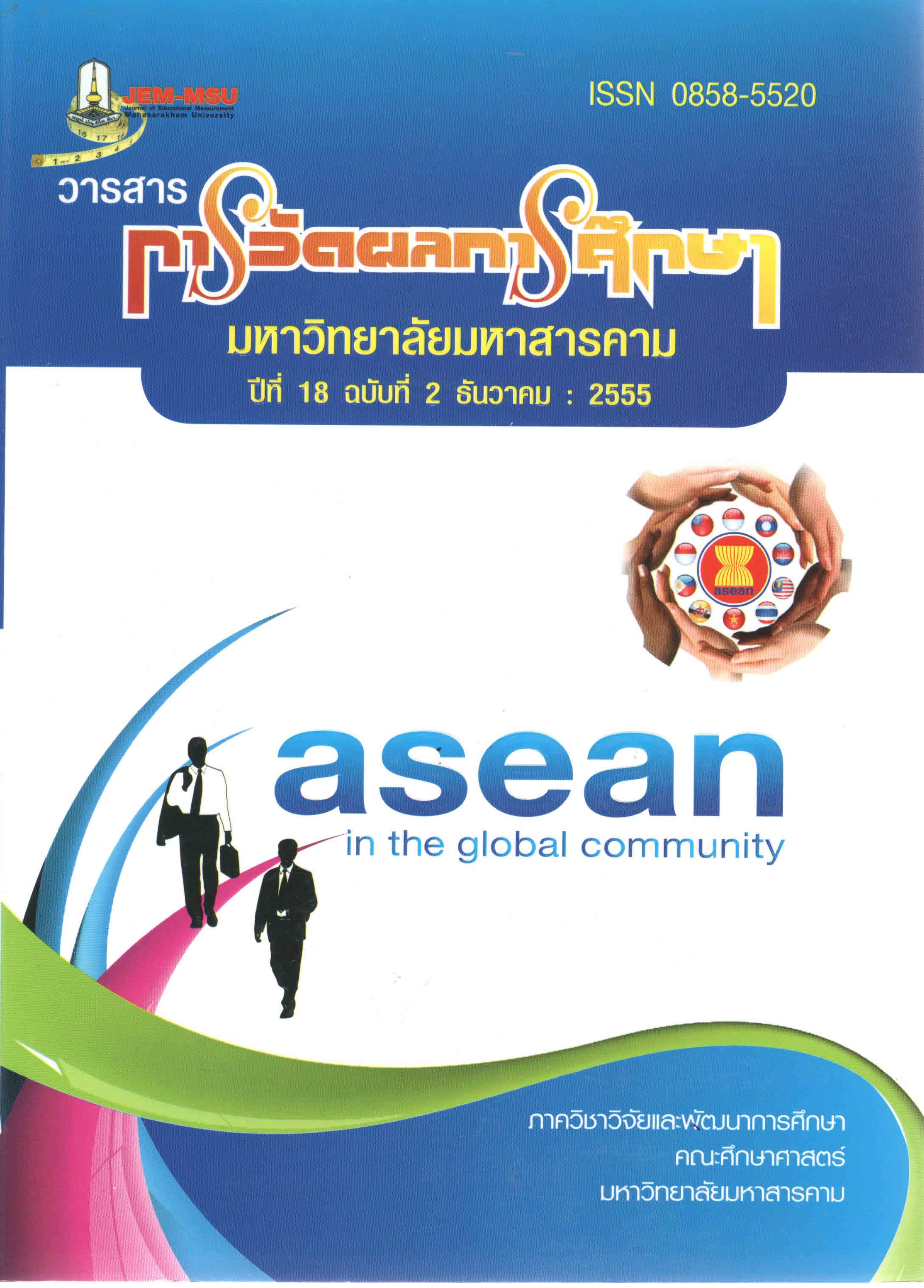Comparisons of Learning Achievement, Synthesis Thinking and Attitude towards Erawan Stanza; Thai Language Class for Matthayomsuksa 3 Students by Using CIPPA Model and KWL PLUS Model
Main Article Content
Abstract
The learning management of CIPPA model and KWL PLUS model was the
procedure of learning and teaching activities with emphasis on student centered
learning. can develop students’ thinking abilities, and those approaches are the
appropriate methods to gain Synthesis thinking abilities and attitude toward Thai
language learning more highly. The purposes of this research were : 1) to compare
learning achievement of Matthayomsuksa 3 students learnining Erawan Staza; Thai
language class before and after using CIPPA Model and KWL PLUS Model,2) to compare
synthesis thinking of Matthayomsuksa 3 students after learning by using CIPPA Model
and KWL PLUS Model, 3) to compare learning achievement, synthesis thinking,
and attitude towards Erawan staza; Thai Language learning class of Matthayomsuksa 3
students by using CIPPA Model and KWL PLUS Model. The sample consisted of 102
Matthayomsuksa 3 students whom studying in the second semester of the academic
year 2011 of Chumpholphonphisai Phophisai School, Phonphisai District, The Secondary
Educational Service Area Office 21. The target group comprised 49 and 53 students,
obtained by using the Cluster Random Sampling technique. The research instruments
included 1) 15 on CIPPA Model lesson plans following the classroom action research
design, and 15 KWL PLUS Model designed lesson plans, 2) the achievement test
consisted of 30 items with discriminating powers (B) ranging 0.20-0.67 and a reliability
of 0.88, 3) the synthesis thinking test consisted of 30 items with item difficulty
(p) ranging 0.41 – 0.74, item discrimination powers (r) ranging 0.22 – 0.67 and the
reliability of 0.93, 4) the questionnaire with 20 items focusing on students'
attitudes towards. Thai language learning with item discrimination (r) ranging 0.22-
0.66 and the reliability of 0.92. The Hotelling T2 was employed for testing
hypotheses
The results of the study were as follows :
1. The learning achievement of Matthayomsuksa 3 students obtained
after learning by using the CIPPA Model and KWL PLUS Model was higher than
before at the level of significant .01.
2. The synthesis thinking ability of students obtained after learning
by using the CIPPA Model and KWL PLUS Model did show the differences in
production of unique communication and derivation of set of abstract relation
at the level of significant .01. Via the synthesis thinking ability of students
obtained after learning by using the CIPPA Model was higher in Production of
unique communication than KWL PLUS Model. The synthesis thinking ability of
students obtained after learning by using the KWL LPUS Model was higher in
Derivation of set of abstract relation than CIPPA Model. The other was not
different.
3. The learning achievement, synthesis thinking, and attitude towards
Thai Language learning of Matthayomsuksa 3 students by using CIPPA Model
and KWL PLUS Model was not different.
In conclusion, learning management using CIPPA model and the KWL
PLUS model is a learner centered approach which could develop learningteaching Thai efficiently. The Thai teachers, therefore, should be encouraged and
supported to implement it in learning-teaching Thai language at any grade
level.
Article Details
The content and information contained in the published article in the Journal of Educational Measurement Mahasarakham University represent the opinions and responsibilities of the authors directly. The editorial board of the journal is not necessarily in agreement with or responsible for any of the content.
The articles, data, content, images, etc. that have been published in the Journal of Educational Measurement Mahasarakham University are copyrighted by the journal. If any individual or organization wishes to reproduce or perform any actions involving the entirety or any part of the content, they must obtain written permission from the Journal of Educational Measurement Mahasarakham University.


